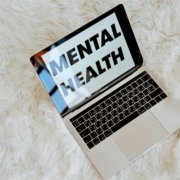Fear, Anxiety, Stress and Worry, Oh My (Part 2)
 Stress is the response – cognitive, emotional, or physical – to a demand or pressure, whether it is pleasant and anticipated, or unpleasant and dreaded. Everyday life can be stressful. The inescapable demands of school, work, and family in this digital age create ongoing life stress, not to mention the current concerns about COVID19, racial inequality, and political differences.
Stress is the response – cognitive, emotional, or physical – to a demand or pressure, whether it is pleasant and anticipated, or unpleasant and dreaded. Everyday life can be stressful. The inescapable demands of school, work, and family in this digital age create ongoing life stress, not to mention the current concerns about COVID19, racial inequality, and political differences.
Stress Warning Signs and Symptoms
| Cognitive Symptoms | Emotional Symptoms |
|
|
| Physical Symptoms | Behavioral Symptoms |
|
|
Stress management should be an inherent component of daily life. Incorporating stress management strategies into daily life will prevent stress from becoming debilitating or overwhelming. Everyday stress management includes regular exercise, adequate sleep, a balance between work and play, and time management.
- Exercise improves mood by allowing the body to release its own feel good hormones.
- Adequate sleep promotes feelings of wellbeing, allows the mind to recover from stress, and provides the energy to accomplish daily tasks.
- Play, anything that one enjoys (reading, watching a movie, gardening, hiking), allows the mind to focus on enjoyable activities, thus releasing it from the demands of work and giving it a needed respite from work.
- Time management helps keep demands and responsibilities in perspective and doable.
A life with these activities included will be much less stressful and enjoyable than a life without them. If these activities don’t help with stress management, seeing a mental health professional may be helpful. They can help you determine whether or not your symptoms are stress-related or a result of a medical condition and help develop a treatment plan to decrease stress.












Leave a Reply
Want to join the discussion?Feel free to contribute!